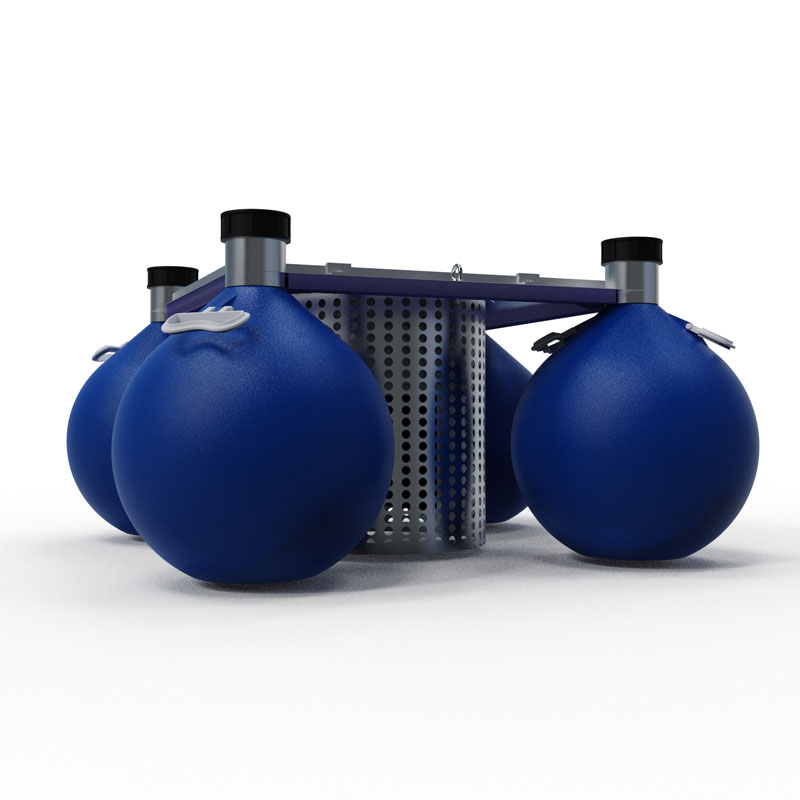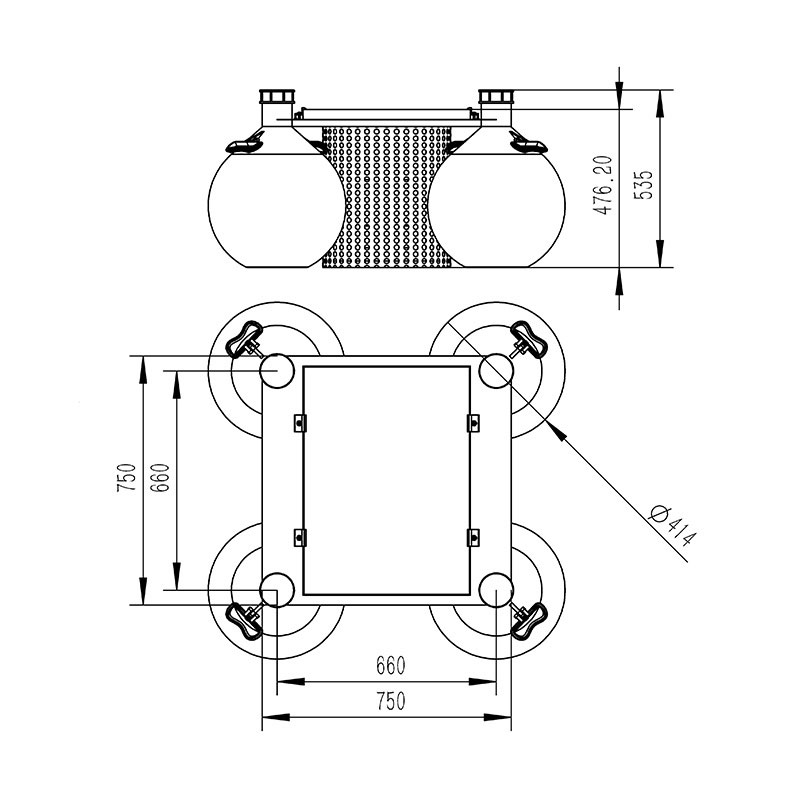Meteorological environment monitoring equipment supplier
Insist on doing high-precision customer favorite technology products

1. Introduction to Buoy monitoring station functions
1. Buoy monitoring station is an automated water quality monitoring system fixed on the water surface by the buoy platform, which can be equipped with a variety of water quality monitoring instruments.The water quality floating monitoring station SFA is an unattended data collection system that integrates data collection, storage, transmission and management. It is an automatic hydrological monitoring and reporting system for industrial and agricultural production, tourism, urban environmental monitoring, geological disasters, flood control, water supply scheduling, power station reservoir water management, etc. The powerful host computer software can remotely observe real-time water and rainfall information, and has database, report, download and other functions. Users can also use the well-functioning meteorological software to further process and analyze the recorded data.
2. The SFA03 buoy is composed of six parts: water quality sensor (water temperature, conductivity, PH), data acquisition instrument, communication system, power supply system, overall bracket, and water quality monitoring platform. At the same time, it can expand dissolved oxygen, ammonia nitrogen, turbidity, COD, and multiple water quality elements. The data acquisition instrument has data acquisition, real-time clock, data timing storage, parameter setting and standard 2G/4G (GPRS) communication functions.
2. Buoy monitoring station product features
1. Easy to deploy: various types of probes are highly integrated and easy to install; free cloud platform services are provided, and the system can be quickly put online;
2. Easy maintenance: After the equipment is installed, it can work automatically without manual supervision. The normal operation of the equipment can also be ensured by remote monitoring;
3. Easy to expand: sensor probes all use a unified communication protocol, which can quickly connect to the original equipment and quickly expand monitoring parameters;
4. Low power consumption: The device can run for a long time in a low power consumption state, increasing the convenience of device use;
5. Real-time: The data monitored by the equipment is transmitted to the cloud platform in real time to improve the timeliness of environmental data feedback.
3. Buoy monitoring station technical parameters
1. Subject parameters
| product name | describe |
| Buoy monitoring station |
Real-time online monitoring of multiple parameters can be achieved. Battery charge monitoring can be realized. It can realize cloud platform data monitoring, data push, Data storage and alarm function; data wireless transmission function. The peak power consumption is 5W; the sensor power consumption is about 0.25W per sensor. Overall dimensions: 750mm*750mm*535mm. Float diameter 414mm Weight: 22kg |
| Collector data collection | Reliable operation, anti-interference, can integrate multiple RS485/MODBUS-RTU slave devices |
| Collector data output | 1 channel RS485/JSON protocol output |
| Battery | Lithium battery 12VDC, 20AH (default) |
| solar panel | 22.1V/50W (default) |
| Power supply capability | Customized selection; intermittent operation for more than 5 days on rainy days |
| Position indicator (optional) | Warning light;GPS positioning; |
| Monitoring Platform | Cloud platform; mobile phone/computer multi-terminal login |
| protecting mask | 304 stainless steel filter cartridge protective cover |
| Floating body | Diameter 414mm, spherical float * 4 engineering plastics |
2. Main parameters of optional sensors
| Serial number | name | Measuring range | Measuring principle | measurement accuracy | Is it standard? | Remark |
| 1 | temperature | 0~50℃ | High-precision digital sensor | ±0.3℃ | ✔ | |
| 2 | pH | 0~14 (ph) | Electrochemistry (Salt Bridge) | ±0.1PH | ✔ | |
| 3 | ORP | -1500mv~1500mv | Electrochemistry (Salt Bridge) | ±6mv | ||
| 4 | Conductivity | 0~5000uS/cm | Contact electrode method | ±1.5% | ✔ | |
| 5 | Turbidity | 0~40NTU (low turbidity) | Scattered light method | ±1% | Low turbidity can be customized | |
| 0~1000NTU (medium turbidity) | Scattered light method | ±1% | Medium turbidity can be customized | |||
| 0~3000NTU (high turbidity) | Scattered light method | ±1% | Default | |||
| 6 | Dissolved oxygen | 0~20mg/L | Fluorescence lifetime method | ±2% | ||
| 7 | Ammonia nitrogen | 0~100mg/l | Ion Selective Electrode Method | ±1mg | ||
| 8 | cod | 0~500mg/L | UV254 absorption method | ±5% | Default hair, cod turbidity integration | |
| Turbidity | 0~400NTU | Scattered light method | ±1% | |||
| 9 | Suspended Matter | 0~2000mg/L | Scattered light method | ±5% (depending on sludge homogeneity) | ||
| 10 | Chlorophyll | 0~400ug/L | Fluorescence method | R2>0.999 |
4. Buoy monitoring station product dimensions

5. Buoy monitoring station equipment installation requirements
1. Stay away from high-power radio transmitters
2. Stay away from high-voltage transmission lines and microwave radio transmission channels
3. Try to be close to the data transmission network
4. Stay away from strong electromagnetic interference
6. Buoy monitoring station cloud platform introduction
1.CS architecture software platform, supports direct observation via mobile phone and PC browser. No additional software installation is required.
2.Support multiple accounts and multiple devices login
3.Support real-time data display and historical data display dashboard
4. Cloud server. Cloud data storage, stable and reliable, easy to expand, and load balanced.
5.Support SMS alarm and threshold setting
6.Support map display and view device information.
7.Support data curve analysis
8.Support data export in table format
9.Support data forwarding, HJ-212 protocol, TCP forwarding, http protocol, etc.
10. Support data post-processing function
11.Support external running of javascript scripts